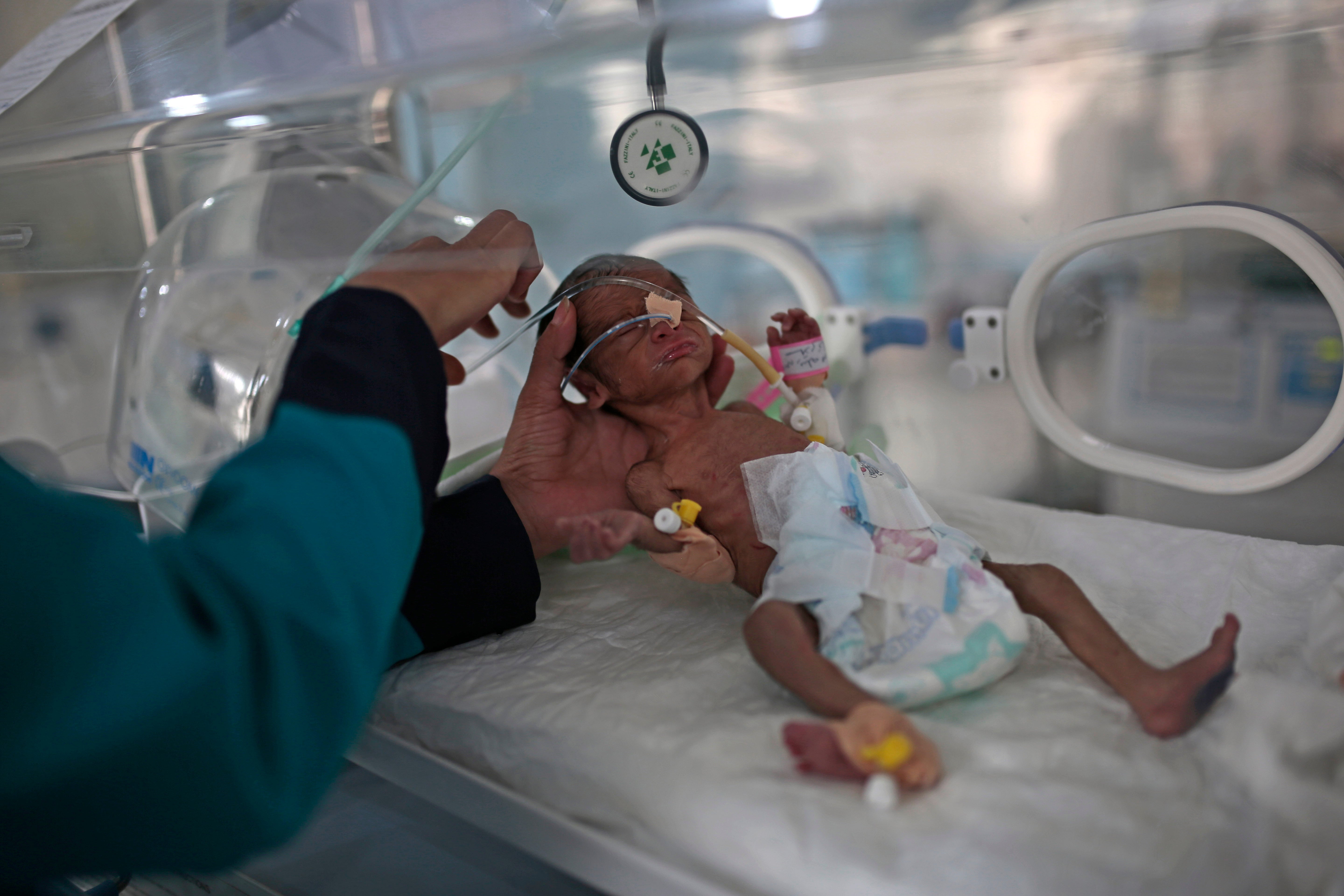UN: Over 2 million Yemeni children may starve in 2021
The United Nations is sounding the alarm over projections that more than 2 million Yemeni children under age 5 are facing starvation this year

Your support helps us to tell the story
From reproductive rights to climate change to Big Tech, The Independent is on the ground when the story is developing. Whether it's investigating the financials of Elon Musk's pro-Trump PAC or producing our latest documentary, 'The A Word', which shines a light on the American women fighting for reproductive rights, we know how important it is to parse out the facts from the messaging.
At such a critical moment in US history, we need reporters on the ground. Your donation allows us to keep sending journalists to speak to both sides of the story.
The Independent is trusted by Americans across the entire political spectrum. And unlike many other quality news outlets, we choose not to lock Americans out of our reporting and analysis with paywalls. We believe quality journalism should be available to everyone, paid for by those who can afford it.
Your support makes all the difference.More than 2 million Yemeni children under the age of 5 are expected to endure acute malnutrition in 2021, four United Nations agencies said Friday, urging stakeholders to end the yearslong conflict that has brought the Arab world's poorest country to the brink of famine.
The U.N. report warned that nearly one in six of those kids — 400,000 of the 2.3 million — are at risk of death due to severe acute malnutrition this year, a significant increase from last year's estimates. The report also said a lack of funds was hampering humanitarian programs in Yemen, as donor nations have failed to make good on their commitments.
Compounding the crisis, around 1.2 million pregnant or breastfeeding women in Yemen are also projected to be acutely malnourished this year.
“These numbers are yet another cry for help from Yemen, where each malnourished child also means a family struggling to survive,” said David Beasley, executive director of the World Food Program, which jointly issued the report with the Food and Agriculture Organization, UNICEF and the World Health Organization.
“The crisis in Yemen is a toxic mix of conflict, economic collapse and a severe shortage of funding," Beasley explained. In 2020, humanitarian programs in Yemen received only $1.9 billion of the required $3.4 billion, the report said.
UNICEF estimates that virtually all of Yemen’s 12 million children require some sort of assistance. This can include food aid, health services, clean water, schooling and cash grants to help the poorest families scrape by.
“But there is a solution to hunger, and that’s food and an end to the violence,” Beasley said.
Yemenis have suffered six years of bloodshed, destruction and humanitarian catastrophe. In 2014, the Iran-allied Houthi rebels seized the capital and much of the country’s north. A Saudi-led coalition launched a sweeping military intervention months later to restore the U.N.-backed government. Despite relentless Saudi airstrikes and a blockade of Yemen, the war has ground to a stalemate.
Last week, President Joe Biden announced that the U.S will no longer support the Saudi-led coalition. But reaching peace will be a difficult path.
Biden also reversed the Trump administration’s designation of the Houthis as a terrorist organization. That move has been hailed by aid groups working in Yemen, who feared the designation would disrupt the flow of food, fuel and other goods barely keeping Yemenis alive.
“Malnourished children are more vulnerable to diseases ... It is a vicious and often deadly cycle, but with relatively cheap and simple interventions, many lives can be saved," said WHO Director-General Tedros Adhanom Ghebreyesus.